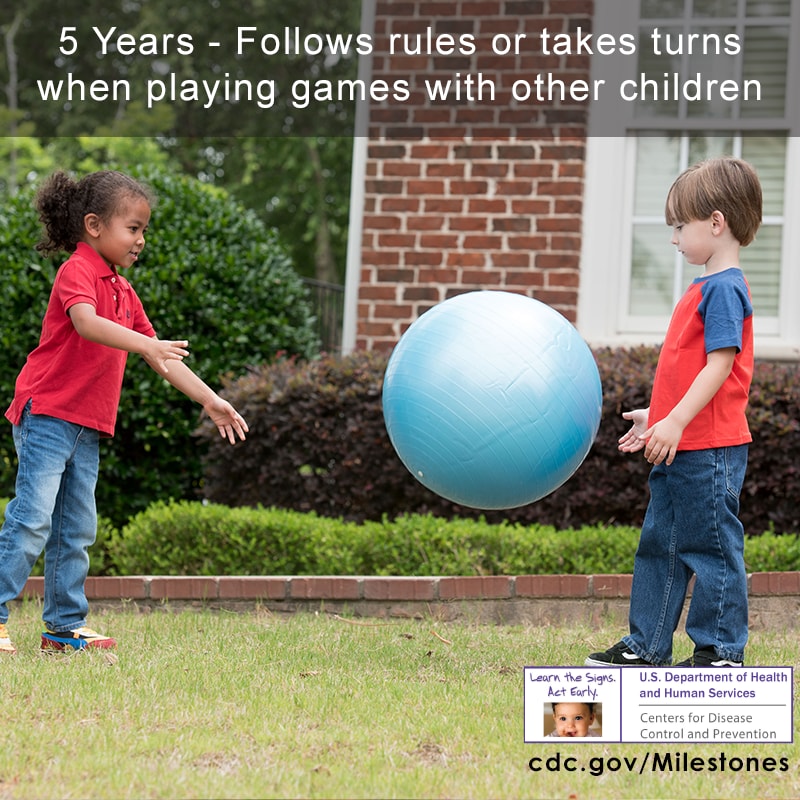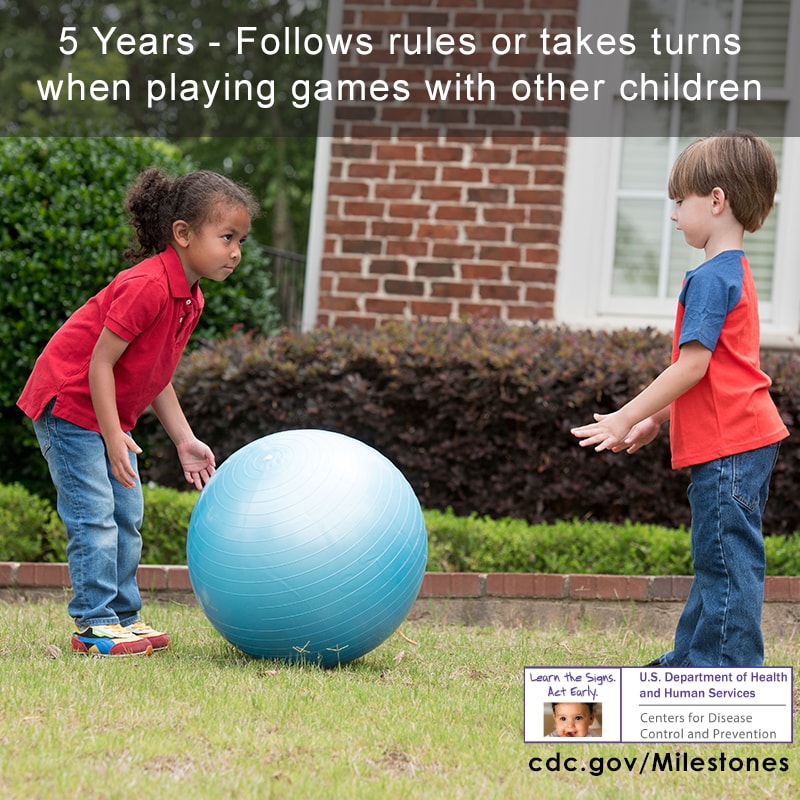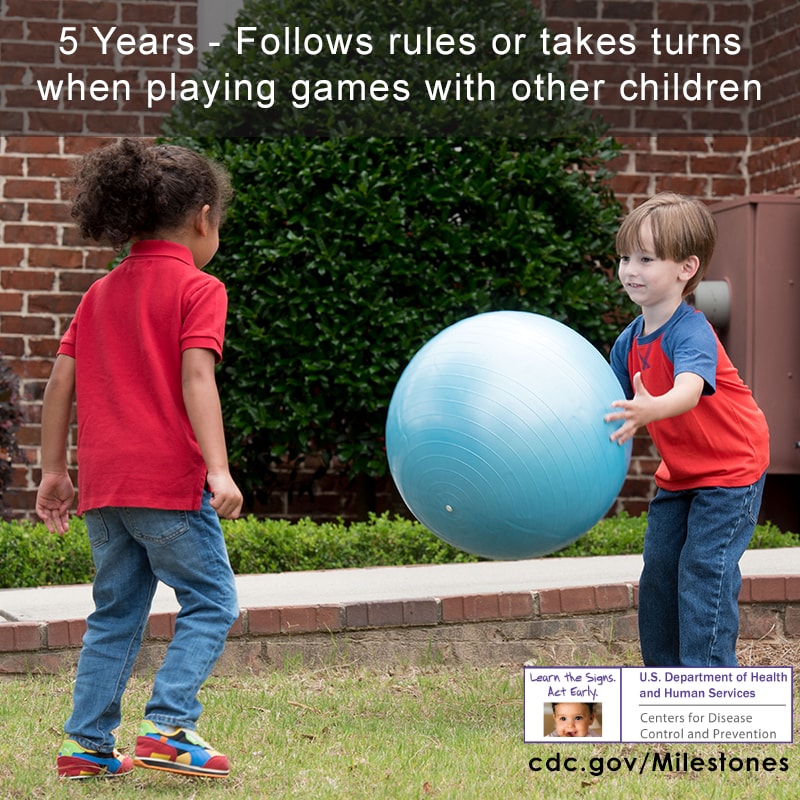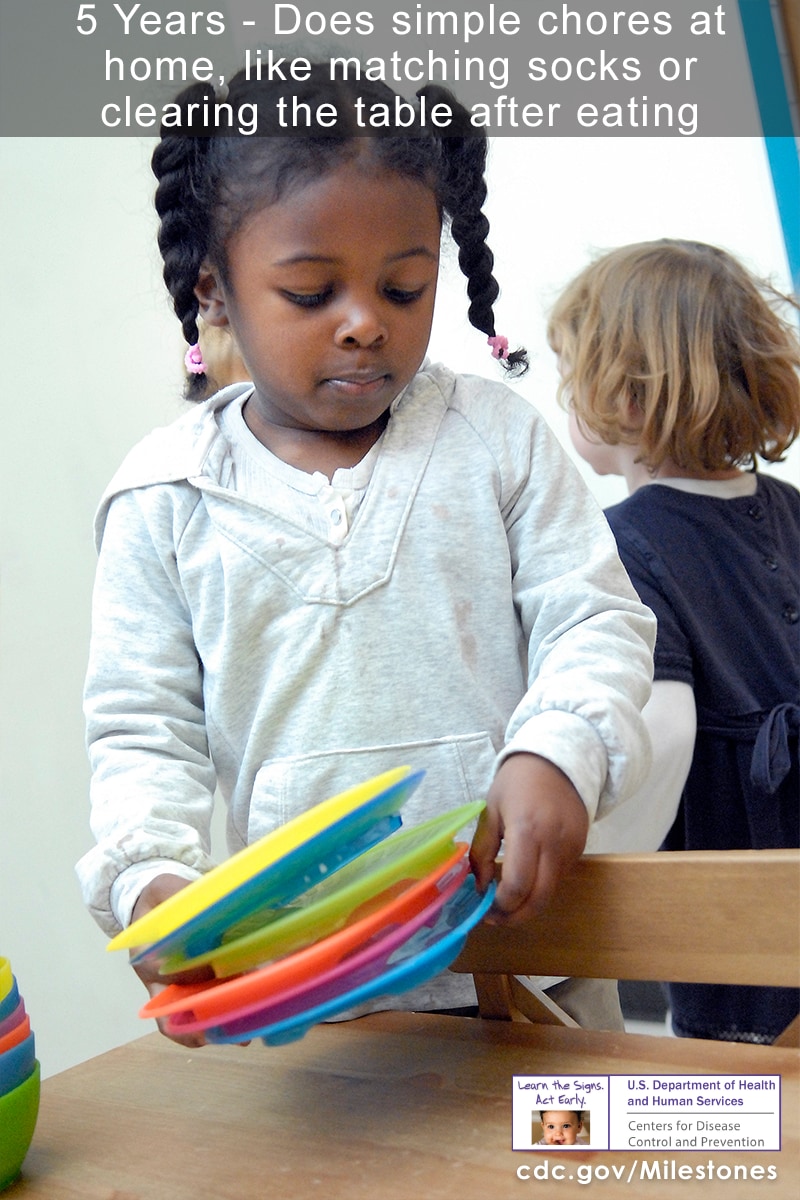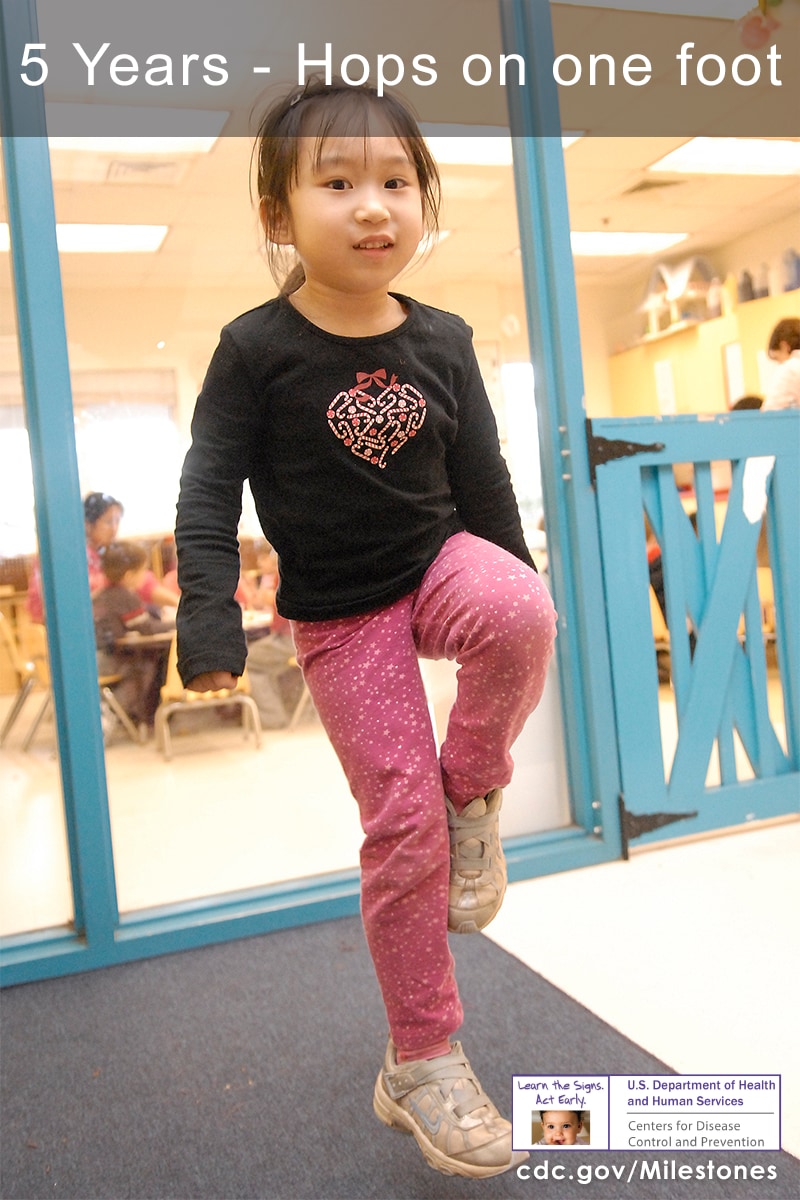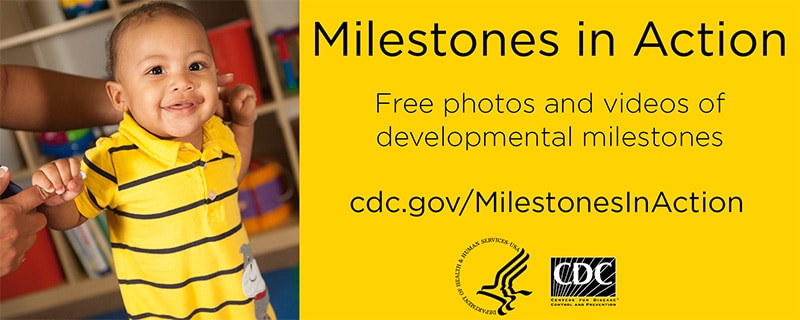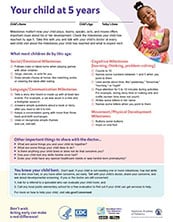Important Milestones: Your Child By Five Years
In 2022, CDC’s milestones and parent tips were updated and checklist for ages 15 and 30 months were added. For more information about the CDC’s developmental milestones, please review the Pediatrics journal article and these important key points.
How your child plays, learns, speaks, acts, and moves offers important clues about your child’s development. Developmental milestones are things most children (75% or more) can do by a certain age.
Check the milestones your child has reached by 5 years by completing a checklist with CDC’s free Milestone Tracker mobile app, for iOS and Android devices, using the Digital Online Checklist, or by printing the checklist [1 MB, 2 Pages, Print Only] below.
“Learn the Signs. Act Early.” materials are not a substitute for standardized, validated developmental screening tools.
What most children do by this age:
Social/Emotional Milestones
- Follows rules or takes turns when playing games with other children

- Sings, dances, or acts for you
- Does simple chores at home, like matching socks or clearing the table after eating

Language/Communication Milestones
- Tells a story she heard or made up with at least two events. For example, a cat was stuck in a tree and a firefighter saved it
- Answers simple questions about a book or story after you read or tell it to him
- Keeps a conversation going with more than three back-and-forth exchanges
- Uses or recognizes simple rhymes (bat-cat, ball-tall)
Cognitive Milestones (learning, thinking, problem-solving)
- Counts to 10
- Names some numbers between 1 and 5 when you point to them
- Uses words about time, like “yesterday,” “tomorrow,” “morning,” or “night”
- Pays attention for 5 to 10 minutes during activities. For example, during story time or making arts and crafts (screen time does not count)
- Writes some letters in her name
- Names some letters when you point to them
Movement/Physical Development Milestones
Other important things to share with the doctor…
- What are some things you and your baby do together?
- What are some things your baby likes to do?
- Is there anything your baby does or does not do that concerns you?
- Has your baby lost any skills he/she once had?
- Does your baby have any special healthcare needs or was he/she born prematurely?
Concerned About Your Child’s Development?
Act Early.
You know your child best. Don’t wait. If your child is not meeting one or more milestones, has lost skills he or she once had, or you have other concerns, act early. Talk with your child’s doctor, share your concerns, and ask about developmental screening.
If you or the doctor are still concerned:
- Ask for a referral to a specialist who can evaluate your child more; and
- Call your state or territory’s early intervention program to find out if your child can get services to help. Learn more and find the number at cdc.gov/FindEI.
For more on how to help your child, visit cdc.gov/Concerned.
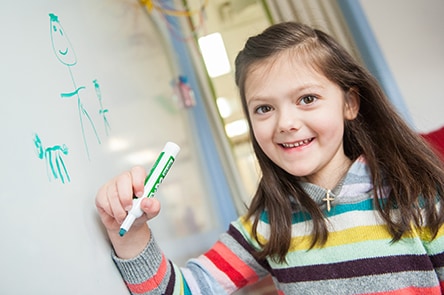
As your child’s first teacher, you can help his or her learning and brain development. Try these simple tips and activities in a safe way. Talk with your child’s doctor and teachers if you have questions or for more ideas on how to help your child’s development.
- Your child might start to “talk back” in order to feel independent and test what happens. Limit the attention you give to the negative words. Find alternative activities for her to do that allow her to take the lead and be independent. Make a point of noticing good behavior. “You stayed calm when I told you it’s bedtime.”
- Ask your child what she is playing. Help her expand her answers by asking “Why?” and “How?” For example, say “That’s a nice bridge you’re building. Why did you put it there?”
- Play with toys that encourage your child to put things together, such as puzzles and building blocks.
Special acknowledgments to the subject matter experts and others who contributed to the review of data and selection of developmental milestones, especially Paul H. Lipkin, MD, Michelle M. Macias, MD, Julie F. Pajek, PhD, Judith S. Shaw, EdD, MPH, RN, Karnesha Slaughter, MPH, Jane K. Squires, PhD, Toni M. Whitaker, MD, Lisa D. Wiggins, PhD, and Jennifer M. Zubler, MD.
Sincere gratitude to Natalia Benza, MD and José O. Rodríguez, MD, MBA for their thoughtful review of the Spanish-language translation of these milestones.
